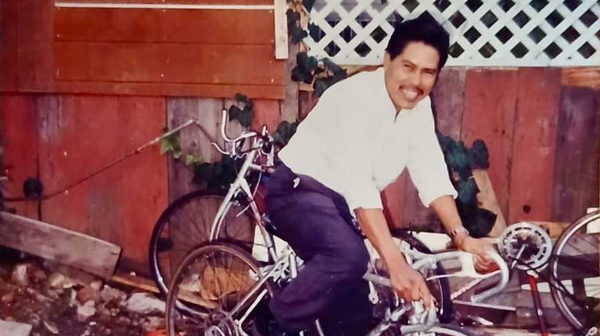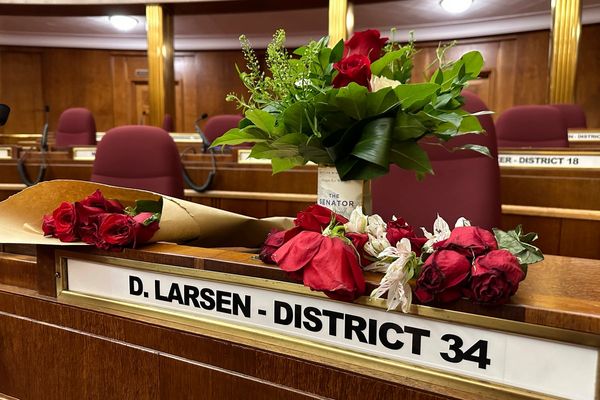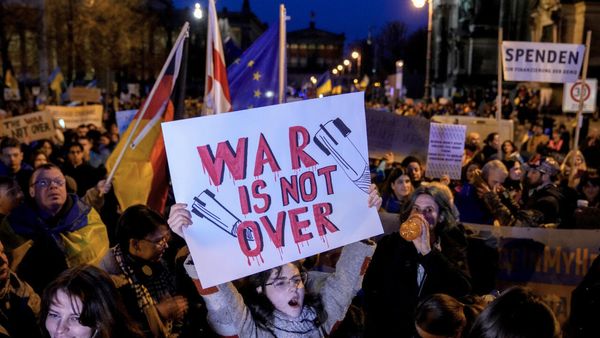
Beit Lahia (Palestinian Territories) (AFP) - After her house was levelled by an Israeli strike, Najah Nabhan wonders what will become of her and dozens of relatives left homeless by the latest fighting to hit Gaza.
"I'd barely reached the street, then the house was bombed," said Nabhan, standing next to the mangled heap of concrete slabs and breeze blocks that had been the family home.
Dozens of homes were destroyed during five days of fighting, which erupted when the Israeli military launched deadly strikes on top militants from the Islamic Jihad militant group.
Nabhan, 56, has been trying to care for her children and grandchildren, many of whom have disabilities, since they were left homeless on Saturday.
"I borrow clothes from the neighbours for them.I didn't take anything with me," she said, in the Bir al-Najeh neighbourhood of northern Gaza.
The family said they were warned in a phone call from the Israeli military that a strike was imminent, but the army did not detail why it targeted the house when asked by AFP.
In total, 103 homes were completely destroyed and 140 severely damaged in the fighting, the United Nations said Tuesday, citing officials in Gaza.
Belal Nabhan, 35, earns just 10 shekels ($2.70) a day selling parsley in the market, and said he remains in a state of shock.
"People were screaming and we ran away...now 45 people are staying here, where will they go?They need shelter," he said, indicating relatives resting beside the rubble.
Israel and Palestinian militants in Gaza, which is ruled by Islamist group Hamas, have fought multiple wars in recent years.
The ruins of past conflicts -- such as a three-day escalation in August which killed 49 Gazans -- are dotted across the densely populated Palestinian territory.
With Gaza's poverty rate at 53 percent, according to the Palestinian Central Bureau of Statistics, few people can afford to rebuild their homes.
'My dreams are gone'
In Deir al-Balah in central Gaza, children clambered atop a huge mound of concrete and rebar flattened by Israeli bombardment.
In the tightly-packed neighbourhood, Mohammed Zidan's home escaped a direct hit but the blast was so powerful it blew out the walls.
"Because you want to strike one person, you don't need to destroy a whole apartment complex," said the 29-year-old.
"I'm a young man, living in my house, with my children in my home.I'm focusing on my work.What's my fault, that you make me pay the price?"
As Zidan stepped over the remains of his bedroom on Monday, Palestinians elsewhere were commemorating the Nakba, or catastrophe.
It marks the expulsion of hundreds of thousands of Palestinians from their homes, in the war which erupted when Israel was created in 1948.
"We will stay living the life of the Nakba, continuously," said Zidan, who has taken to sleeping on the street behind his home.
The Israeli military did not immediately respond to an enquiry from AFP on why it targeted the neighbourhood.
A fragile ceasefire has largely held since late Saturday, ending the repeated rounds of Israeli strikes and volleys of rocket fire launched by Palestinian militants.
The fighting killed 33 people in Gaza, including children as well as militants, and two civilians in Israel.
Sitting in a donated wheelchair in Bir al-Najeh, Haneen Nabhan said she fainted when she heard her home was destroyed.
"I used to take medicine, but the medicine's in the rubble," she said.
"All my dreams were in the house, and my dreams are gone."







